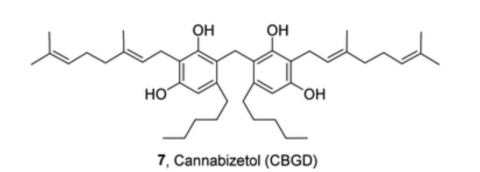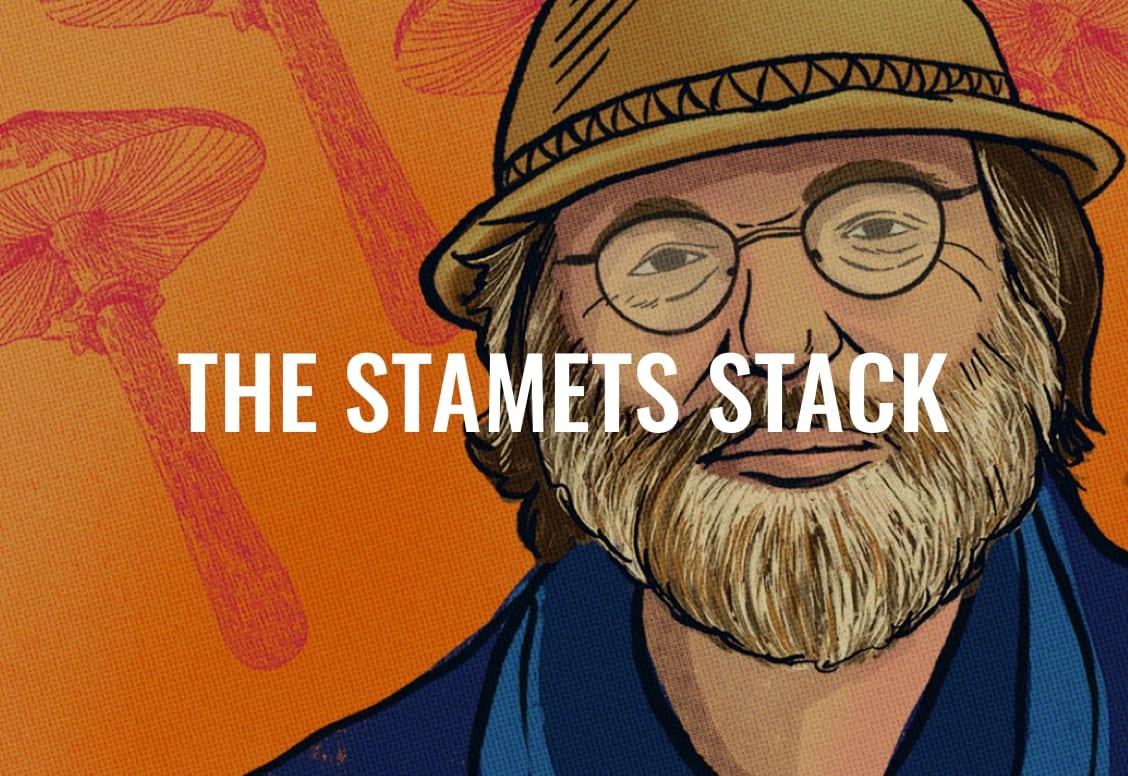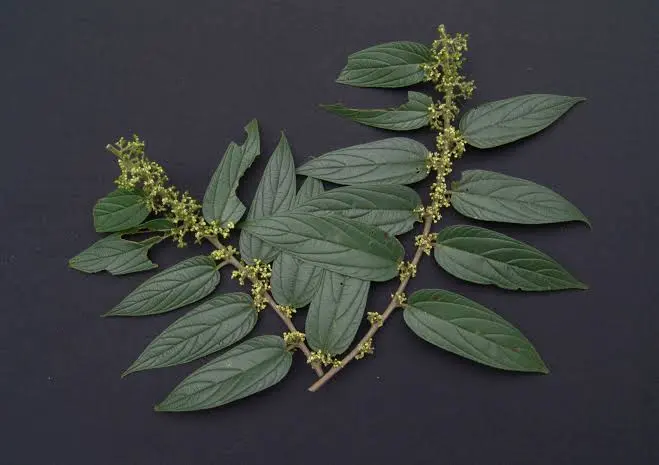What happens when you combine two ancient mushrooms with modern vaccines? University of California researchers just found out.
My first COVID shot happened to fall on a Friday afternoon. By Saturday morning, I felt like I’d been hit by a truck. Headache pounding. Body aching. That weird foggy brain where even simple tasks feel impossible.
It took three days to feel normal again.
And I’m lucky. Some people feel worse. Some people feel terrible for a week.
Here’s what bothers me most. About 30% of people say they avoid vaccines specifically because of side effects. Not because they don’t believe vaccines work. Just because feeling miserable for days isn’t appealing.
Can you blame them?
But what if vaccine side effects didn’t have to be so brutal? What if there was a way to get protection without the punishment?
Researchers at the University of California just published something remarkable. They tested two medicinal mushrooms alongside COVID vaccines. The results surprised everyone.
People who took the mushrooms had almost no side effects. Same vaccine. Same protection. Completely different experience.
And six months later? Their antibody levels were actually stronger than people who didn’t take the mushrooms.
This isn’t marketing hype. This is peer-reviewed science published in one of the most respected journals in the field. And it changes how we think about immune support.
Let me walk you through exactly what they found.
The Study: What They Actually Did
The research team was led by Dr. Gordon Saxe at UC San Diego. Paul Stamets, the famous mycologist you might know from Joe Rogan’s podcast, was a co-author.
They recruited 90 healthy adults who were scheduled to get COVID vaccines or boosters. These were regular people. Not sick. Not immunocompromised. Just folks getting their shots.
The researchers split them into two groups randomly. Half got mushroom capsules. Half got fake capsules filled with rice powder.
Nobody knew which group they were in. Not the participants. Not the researchers giving out the capsules. That’s called “double-blind” and it’s the gold standard for eliminating bias.
The mushroom capsules contained two species. Agarikon and Turkey Tail. Not the mushroom part you see above ground. The mycelium. That’s the root-like network that grows underground.
Think of mushrooms like trees. Most people eat the fruit (the part above ground). But the mycelium is like the roots and trunk. That’s where a lot of the medicinal compounds live.
The dosing was simple. Eight capsules, three times per day, for four days. That’s it.
They started taking capsules the day they got vaccinated. They continued for three more days. Then they stopped.
Four days total.
Then the researchers tracked what happened for six months.
What Happened: The Side Effect Story
The first thing they measured was side effects.
Everyone tracked their symptoms for five days after vaccination. Fever. Headache. Fatigue. Muscle aches. Injection site pain. All the usual stuff.
Here’s where it gets interesting.
The participants fell into two natural categories. Some had never had COVID before and had never been vaccinated. Let’s call them “COVID-naive.”
Others had either caught COVID previously or had been vaccinated before. Let’s call them “COVID-exposed.”
Your immune system treats these situations completely differently.
If you’ve never seen COVID before, your immune system is meeting it for the first time. That’s when vaccines tend to hit hardest. Your body is figuring out what this new threat is.
If you’ve had COVID or prior vaccines, your immune system already has some memory. It knows what to do. The reaction is usually milder.
The researchers discovered something remarkable when they split the data this way.
In COVID-naive people:
The placebo group felt terrible on days two and three. Side effect scores shot up dramatically. Headaches. Fatigue. Body aches. The full miserable experience.
The mushroom group? Their side effect scores barely increased at all.
On day three, the difference was huge. Statistically significant. Not a fluke.
By day five, the placebo group was still feeling rough. The mushroom group was basically back to normal.
Same vaccine. Same immune protection being built. Completely different experience.
In COVID-exposed people:
The mushrooms made no difference to side effects. Both groups felt similar levels of discomfort.
Why? Because their immune systems were already primed. They weren’t having that massive first-time reaction. There was less inflammation to modulate.
This tells us something important. The mushrooms weren’t suppressing immunity. They were modulating the response in people whose immune systems were working extra hard.
Think of it like a volume knob on a stereo. If the music is already at a comfortable level, turning the knob doesn’t do much. But if the music is blasting and hurting your ears, turning it down helps a lot.
The Antibody Story: Protection That Lasts
Side effects matter. But protection matters more.
If the mushrooms reduced side effects by weakening the immune response, that would be terrible. You’d feel better but be less protected.
The opposite happened.
The researchers measured antibody levels at multiple time points. Day three. Day fourteen. Day twenty-eight (or day forty-two for people who got two-dose vaccines). And six months.
Antibodies are like soldiers that fight viruses. More antibodies generally means better protection.
Here’s the typical pattern after vaccination. Antibody levels shoot up in the first few weeks. They peak around four to six weeks. Then they gradually decline over months.
That decline is normal. Your body doesn’t keep maximum antibody levels forever. It’s too resource-intensive.
Instead, your body makes memory B-cells. Think of these like a recipe book. They store the instructions for making antibodies quickly if the virus shows up again.
Active antibodies are like having soldiers on patrol. Memory B-cells are like having a military academy that can train new soldiers fast when needed.
Here’s what the researchers found:
In the placebo groups (both COVID-naive and COVID-exposed), antibody levels followed the normal pattern. Up, then down over six months.
In the COVID-exposed mushroom group, antibody levels also declined normally.
But in the COVID-naive mushroom group? Something different happened.
Their antibody levels didn’t just stay high. They actually increased from day fourteen to six months.
Let me repeat that. Six months after vaccination, the mushroom group had higher antibody levels than they did two weeks after vaccination.
That’s not normal. That’s remarkable.
It suggests the mushrooms helped form better immune memory. Not just a stronger immediate response, but better long-term learning.
How This Works: The Mechanism
So how do mushrooms do this?
The researchers have theories based on how we know immune systems work. They didn’t measure every mechanism directly in this study. But the patterns match what we know from other research.
The inflammation story:
When you get vaccinated, your immune system triggers inflammation. That’s necessary. Inflammation is your body’s alarm system saying “something’s wrong, send help.”
But too much inflammation causes problems. That’s what creates side effects. The headache. The fever. The fatigue.
There’s a signaling molecule called IL-1. It ramps up inflammation after vaccination. That’s good initially. But if IL-1 stays high too long, you feel miserable.
Both Turkey Tail and Agarikon increase something called IL-1Ra. The “Ra” stands for “receptor antagonist.” Basically, it’s a brake pedal for IL-1.
Think of IL-1 as the gas pedal and IL-1Ra as the brake. You need both to drive smoothly.
The mushrooms didn’t eliminate inflammation. They just kept it from going overboard.
The memory B-cell story:
Making good immune memory requires perfect timing.
Memory B-cells form after the initial inflammatory response settles down. If inflammation stays too high for too long, it can actually interfere with memory formation.
By modulating inflammation, the mushrooms may have created better conditions for memory B-cell development.
It’s like studying for a test. If you’re stressed and panicking, you don’t learn as well. If you’re calm and focused, the information sticks better.
The mushrooms didn’t make the immune system work harder. They helped it work smarter.
The CD8+ T-cell angle:
There’s also research showing Turkey Tail increases CD8+ T-cells. These are another type of immune cell that kills infected cells and supports long-term immunity.
So the mushrooms might have been working on multiple levels. Calming excess inflammation while supporting the cells responsible for lasting protection.
The Four-Day Window
Here’s what fascinates me most.
They only took capsules for four days.
Four days.
But the effects lasted six months. Maybe longer. The study stopped tracking at six months.
Why would such a short intervention have such long effects?
Because timing matters enormously in immune responses.
The first few days after vaccination are critical. That’s when your immune system is deciding how to respond. How much inflammation to trigger. Which memory cells to make. How strongly to encode the memory.
The mushrooms were there during that critical window. They influenced how the response was set up. Once that setup was done, the effects lasted.
It’s like setting up dominoes. You only need a few seconds to position them correctly. But once you knock over the first one, the whole chain reaction follows.
Or think about concrete. The first few days while it’s setting are crucial. Add the right additives during that window and you change the final strength permanently.
The mushrooms weren’t maintaining immunity for six months. They were helping build better immunity during the critical setup phase.
What About Safety?
No adverse events. Zero.
The researchers tracked liver and kidney function. Normal in both groups.
Treatment adherence was 96%. People actually took their capsules as instructed.
No one experienced “cytokine storm” or dangerous immune reactions.
Both Agarikon and Turkey Tail have decades of safety data. They’ve been used in research and traditional medicine for a long time. These aren’t experimental compounds with unknown risks.
The short four-day dosing window also limits any potential risks. You’re not taking these daily for months.
Why This Matters Beyond COVID
Vaccine hesitancy is real.
Thirty percent of people avoiding vaccines because of side effects represents millions of people who might benefit from protection but choose not to get it.
Elderly people who could really use flu shots. Healthcare workers who need boosters. People with health conditions where vaccines could help.
If side effects were more manageable, vaccination rates would likely increase.
But this research matters beyond just side effects.
The finding about sustained antibody levels addresses another huge problem. Waning immunity.
We’ve all heard about breakthrough infections. Vaccinated people getting COVID months after their shots. That happens partly because antibody levels decline.
If mushroom adjuvants can extend protection duration, that could reduce the need for frequent boosters. Less cost. Less hassle. Better compliance.
The cross-protection angle:
There’s another fascinating possibility.
Previous research showed that mushroom mycelia used with flu vaccines created cross-protection. Meaning the vaccine worked against virus strains it wasn’t specifically designed for.
If that applies here, mushroom adjuvants might make vaccines more robust against new variants.
That’s huge for rapidly mutating viruses.
The H5N1 connection:
Bird flu (H5N1) is in the news lately. It’s spreading to mammals. The human fatality rate for H5N1 is around 52%. Terrifying.
If H5N1 vaccines need to be developed quickly, we’ll want them to be maximally effective and well-tolerated.
Agarikon specifically has shown anti-H5N1 activity in lab studies. Using it as a vaccine adjuvant might help address the next pandemic threat.
I’m not fearmongering. I’m just noting that this research has applications beyond COVID.
Paul Stamets and the Bigger Picture
Paul Stamets co-authored this study.
Most people know him from Joe Rogan’s podcast. From his work on psilocybin mushrooms. From the “Stamets Stack” for microdosing.
That’s the flashy stuff that gets attention.
But this work—vaccine adjuvants, immune modulation, pandemic preparedness—might be his real legacy.
Stamets has been researching mushroom immune effects for over forty years. He founded Fungi Perfecti in 1980. He’s published extensively.
His company provided the mushroom capsules used in this study. They were manufactured to cGMP standards (pharmaceutical-grade quality control).
This isn’t a celebrity lending his name. This is a mycologist doing careful, rigorous research.
The reason I mention this is because quality matters enormously with mushrooms.
Most Lion’s Mane supplements use fruiting body (the cap) because it’s cheaper. But research suggests mycelium has different compounds and may work better for brain and immune function.
Most supplements don’t specify extraction methods. But hot water or ultrasonic extraction is necessary to break down the tough cell walls and make compounds bioavailable.
Most products don’t distinguish between mushroom species or what part of the mushroom is used.
This study used mycelium. Extracted properly. From specific species. Quality-controlled.
That specificity matters when you’re trying to understand what actually works.
The Limitations We Need to Acknowledge
This study was preliminary.
Ninety people isn’t huge. Once you split into subgroups (COVID-naive mushroom group, COVID-naive placebo, etc.), the numbers get smaller.
The follow-up was only six months. What happens at twelve months? Two years? We don’t know.
They didn’t measure the actual mechanisms. No IL-1Ra levels. No memory B-cell counts. No CD8+ T-cell measurements.
The patterns match the theory, but the theory isn’t proven.
The study didn’t control for which type of Lion’s Mane people might have been taking separately. Or other supplements. Though since both groups had the same baseline characteristics, this probably balanced out.
And most importantly: this needs to be replicated.
One study isn’t enough. This needs to be tested in larger groups. Different populations. Different vaccines. Longer timelines.
The researchers were careful to say this is preliminary. Promising, but preliminary.
What This Means For You
I’m not telling you to go buy Agarikon and Turkey Tail before your next vaccine.
First, they’re not legally available as supplements in Ireland or the EU yet. They require Novel Food authorization that hasn’t been granted.
Second, even in the US where they’re more available, we don’t have enough research yet to make specific recommendations.
Third, this is one study. More research is needed.
But here’s what I am saying.
This research changes how I think about immune support.
Most immune supplements claim to “boost” your immune system. Make it stronger. More aggressive. Louder.
But maybe the best immune support is making your immune system smarter. More balanced. More efficient at building memory.
Less panic, more precision.
The immune system isn’t a muscle that needs strengthening. It’s a complex communication network that needs good information and proper modulation.
These mushrooms didn’t make the immune response bigger. They made it work better.
That’s a fundamentally different approach.
The Bigger Conversation
We need more research like this.
Research that looks at natural compounds working with modern medicine, not instead of it.
Research that measures real outcomes in real people, not just test tubes.
Research that acknowledges immune systems are complex and context-dependent.
The finding that mushrooms worked differently in COVID-naive versus COVID-exposed people is perfect example. One size doesn’t fit all. Your immune history matters.
Age matters. Health status matters. Prior exposures matter.
That’s why blanket supplement recommendations frustrate me. “Everyone should take X” rarely accounts for individual context.
But “here’s research showing X helped people in Y situation” is useful. It gives us data to make informed decisions.
Final Thoughts
Four days of mushroom capsules.
Dramatically reduced side effects in people getting vaccinated for the first time.
Preserved antibody levels for six months.
No safety concerns.
That’s the headline.
But the deeper story is about immune modulation. About helping your body respond more effectively during critical windows. About supporting memory formation instead of just triggering immediate reactions.
This research opens doors. It suggests new ways of thinking about vaccines, immunity, and how natural compounds might work alongside modern medicine.
More studies will come. Larger trials. Longer follow-ups. Different populations.
We’ll learn more about mechanisms. Optimal dosing. Which mushrooms work for which situations.
But right now, this study gives us something valuable. Evidence that the immune system can be modulated naturally during vaccination in ways that reduce discomfort while preserving or even enhancing protection.
That’s worth paying attention to.
I’ll keep watching this research. When new studies come out, I’ll share them.
Because understanding how our immune systems work helps us make better decisions about our health.
And that matters more than any product I could sell you.
References:
Saxe, G. et al. (2025). Polypore Mushroom Mycelia as an Adjunct to COVID-19 Vaccination: A Randomized Clinical Trial. Scientific Reports.






